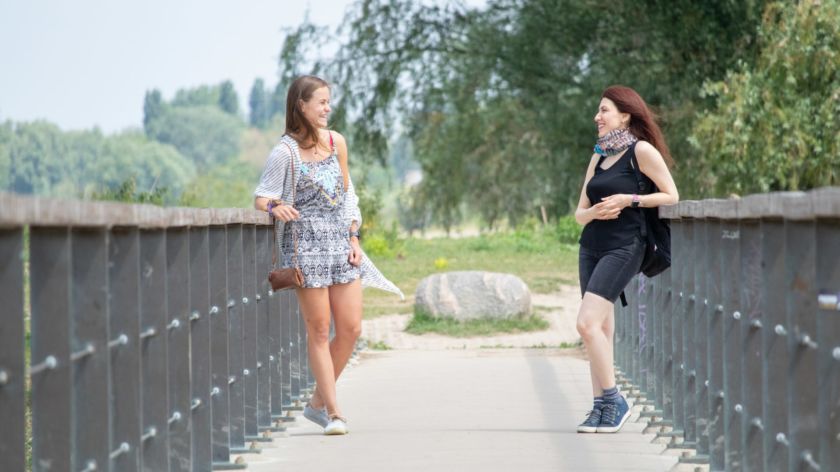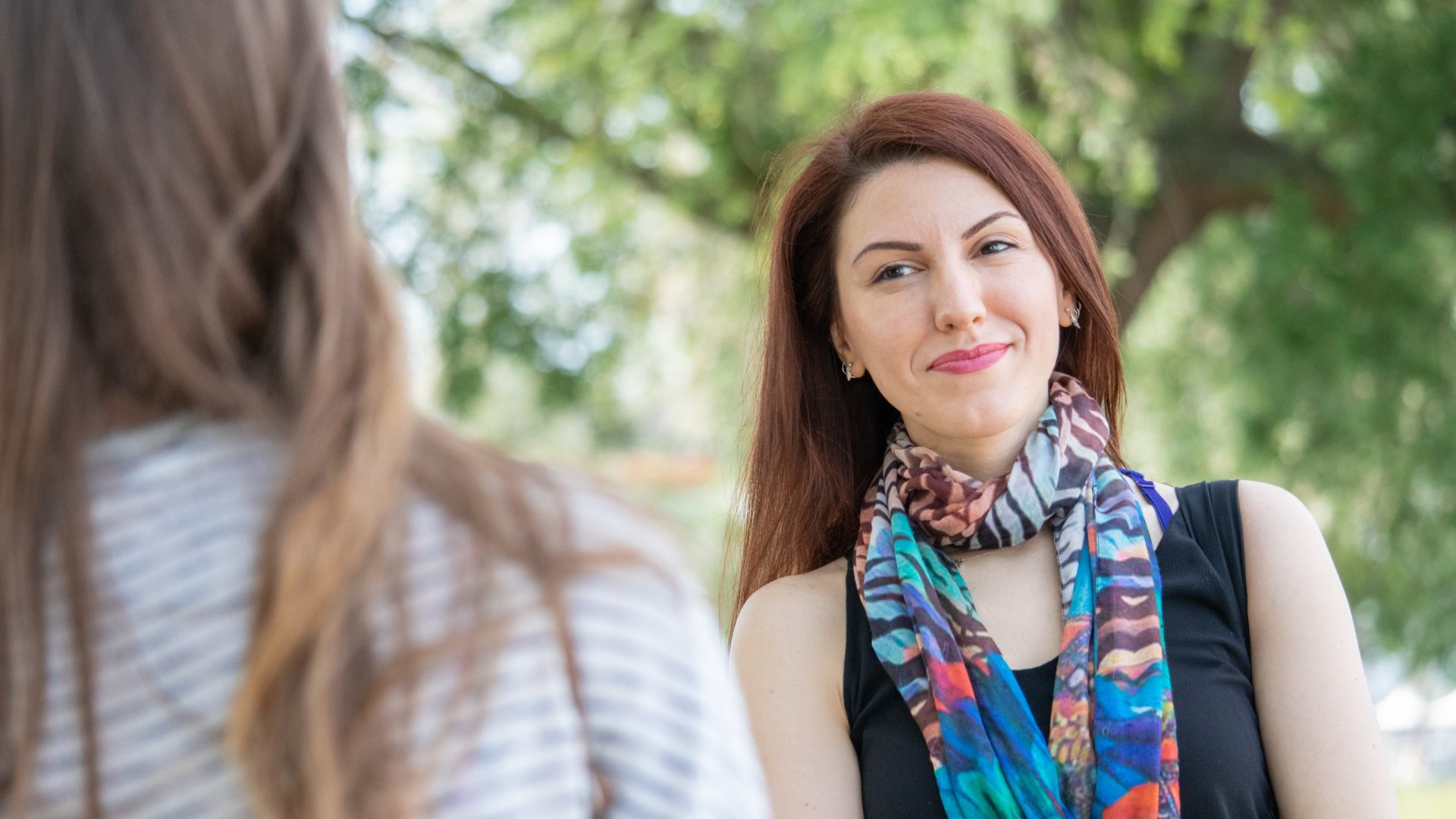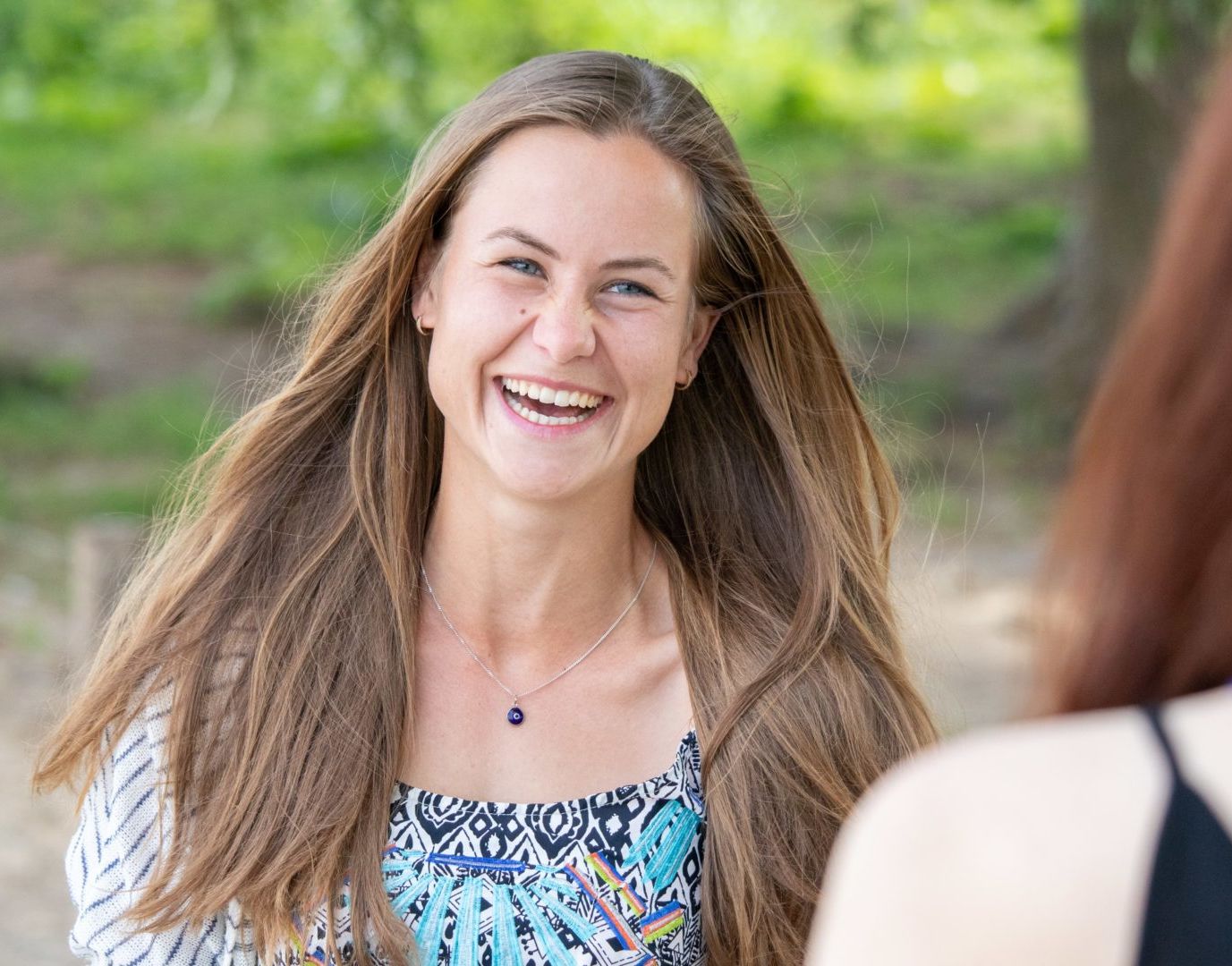Buddies help PhD candidates through the coronavirus crisis
-
 Esther Veldhuizen en Neli Raycheva. Foto: Rein Wieringa
Esther Veldhuizen en Neli Raycheva. Foto: Rein Wieringa
The coronavirus crisis can intensify feelings of loneliness and stress among PhD candidates, especially those from abroad. Specially trained student buddies offer support.
The Ooijpolder, Goffert, Heumensoord. Every week, PhD candidate Neli Raycheva (32) discovers another realm of the Kingdom of Nijmegen, on her weekly walks with Economics student Esther Veldhuizen. The other day they even got a bit lost on their way to the Goffert Park. ‘Navigation is not my strong suit,’ laughs Veldhuizen on the Jitsi video screen.

24-year old Veldhuizen is Raycheva’s buddy, someone the PhD candidate can talk to about what goes on in her life. ‘I noticed that I needed social support when I ended up at home because of the coronavirus crisis,’ explains the Turkish astronomer. ‘Working alone from home is quite a challenge. The social life I had with colleagues at my department disappeared completely, and my friends and family all live in Turkey and Bulgaria.’
Health problems
Now she has Veldhuizen to talk to, thanks to the buddy system set up by the Global Staff Services last month. The service is intended to support PhD candidates who run into problems due to the coronavirus crisis, explains project assistant Marieke Gommans, by connecting them with a student. ‘We know that many PhD candidates develop mental health problems. International PhD candidates are more likely to be affected and experience loneliness. By connecting them with a buddy, they will have someone to talk to.’
Participants can apply via an online form, followed by an intake interview with a buddy. Gommans: ‘How have you been sleeping? Do you still go outside? These are the kinds of questions we ask people.’ The buddies are primarily Master’s students, recruited through Campus Detachering.
‘What do you say when you see that someone is really struggling psychologically?’
So far, almost thirty PhD candidates have applied and approximately ten buddies have been trained. Most of the PhD candidates come from abroad, but some are Dutch, says Gommans. ‘Dutch PhD candidates can also suffer from the coronavirus crisis, for example in the form of loss of motivation.’
The buddies know what they are doing, emphasises Gommans. Most of them already have experience as a mentor during Introduction Week, or they spent time studying abroad themselves.
Special training
Buddies are also specially trained. Gommans: ‘They are taught interview techniques like LSD: listen, summarise, dig deeper. But also how to start a conversation or what to say when you see that someone is really struggling psychologically.’ In case of severe symptoms, the PhD candidates are referred to secondary healthcare providers, like psychologists or social workers.
Incidentally, buddies provide not only psychological but also practical help, adds the project assistant. ‘Many people have questions like: What do the coronavirus measures entail exactly? Can I still go home? What are the consequences for my visa? These are real concerns for PhD candidates from outside Europe.’

Calming
The buddy training programme was very useful, says Esther Veldhuizen. ‘I could really empathise with how it feels to live abroad because I was an exchange student myself. But I didn’t know much about the kind of stress you can experience as a PhD candidate: the pressure to publish and worries about whether you will find work after you graduate.’
The talks and walks with Veldhuizen have a calming effect, notices Raycheva. ‘After our first meeting, I immediately felt more relaxed. It’s nice to talk about things with someone other than your colleagues. Esther understands my struggles and she always has time for a chat.’ What also helps is that during her Bachelor’s programme, Veldhuizen studied in Istanbul for a few months, Raycheva’s hometown.
‘I’m not a counsellor’
These days, the astronomer is feeling better. ‘I’ve accepted that this is what life is like at the moment. I try to turn the situation into something positive. By realising how important it is to remember to rest, for example.’
Veldhuizen also benefits from these weekly meetings, she adds. ‘It works both ways. I’m not a counsellor, but a buddy, which means we’re equals. Otherwise I wouldn’t have volunteered.’ She laughs. ‘And I can see how hard Neli works, and how disciplined she is, which is something I can learn a lot from.’



